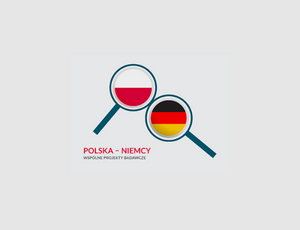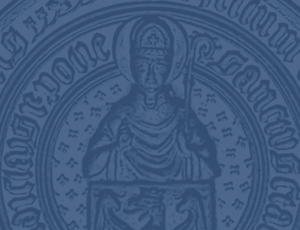The Foundation for Polish Science has announced the results of the first call for applications (1/2023) in the FIRST TEAM action funded by the European Funds for the Modern Economy (FENG) programme. Funds totalling over PLN 101 million will be awarded to 27 projects, including five from the Jagiellonian University.
Dr Sylwia Bobis-Wozowicz, Dr Michał Silarski, Dr Przemysław Grudniek, Prof Przemysław Spurek and Dr Bartosz Zieliński have been awarded over PLN 17.5 million.
The FIRST TEAM action makes it possible to obtain funding for setting up a research team and conducting innovative research with application potential in Poland.
The funding will enable new research teams to be set up consisting of young scientists, doctoral students and students selected through an open competition, and will make it possible to purchase the equipment necessary to carry out the project. The awarded projects represent various fields of science and are aimed at innovative research with application potential. 202 projects from 68 research organisations were submitted to the first call for proposals. Funding for a total of PLN 101 361 052 was awarded to 27 projects (success rate: 13.36%).
The highest rated project is ''Non-invasive sensor for detecting hazardous materials in the aquatic environment'' by Dr Michał Silarski from the Faculty of Physics, Astronomy and Applied Computer Science. The aim of the project is to test, under near-real conditions, a portable device that allows the remote detection and identification of hazardous substances such as war remnants, war gases, etc., in an aquatic environment. The principle of the device is based on the phenomenon of neutron activation of the substance and the measurement of the spectra of the characteristic gamma quanta produced after irradiation of the substance with a neutron beam. In contrast to commonly used methods, the solution proposed in the project allows the chemical composition of a suspect object to be determined remotely, without endangering human life and health.
The FIRST-TEAM winner is Dr Sylwia Bobis-Wozowicz from the Faculty of Biochemistry, Biophysics and Biotechnology, who will implement the project ''Innovative strategy for treating cystic fibrosis''. The project aims to develop a novel treatment strategy for cystic fibrosis using cutting-edge technologies based on extracellular vesicles (EVs) and genome editing tools such as the CRISPR/Cas9 system. Cystic fibrosis is the most common single-gene inherited disease in the Caucasian population. As a result of mutations in the CFTR gene, patients often develop pneumonia, which in chronic states leads to pulmonary fibrosis. Despite the available pharmacological treatment, cystic fibrosis is an incurable disease and patients live to 24-39 years of age. Therefore, there is a need to develop new therapies that effectively eliminate the cause of the disease or significantly improve patients' lives.
Funding for the FIRST-TEAM Project ''Inducing molecular proximity to modulate cellular metabolism of polyamines'' was also awarded to Dr Przemysław Grudnik from the Małopolska Biotechnology Centre. The project involves the development of new molecules that induce proximity in the polyamine metabolism pathway by combining the methodologies of crystallographic screening of chemical fragments, imaging of protein complexes and studies of cellular polyamine metabolism. It is planned to develop a bifunctional molecule that stabilises the ornithine decarboxylase (ODC) and antizyme (Az) complexes, crucial for polyamine metabolism. Additionally, the project aims to develop a first-in-class modulator of the hypesinylation process, a unique modification of the eIF5A factor essential for the protein translation process.
Prof Przemysław Spurek and Bartosz Zieliński, PhD, from the Faculty of Mathematics and Computer Science, were also awarded prizes.
The project ''Efficient rendering of 3D objects represented with NeRF in an augmented reality environment'' by Prof Przemysław Spurek, aims to create a system that allows the creation of graphic content for VR. Initial work will be based on using existing NeRF models and verifying their usability in the context of use in VR. On this basis, the team plans to create new, specialised NeRF models dedicated to VR applications.
Dr Bartosz Zieliński's project ''Interpretable and interactive multimodal search in the drug discovery process'' concerns the use of knowledge search tools and interactive and interpretable machine learning to increase the efficiency of the drug discovery process. The planned tool will be able to analyse images of cellular events, such as those taken in the CellPainting (CP) protocol, and identify potential small-molecule drugs that can trigger specific cellular events. As a result, elements of the drug discovery process such as hit identification, virtual scanning and drug repositioning will be faster and cheaper.



